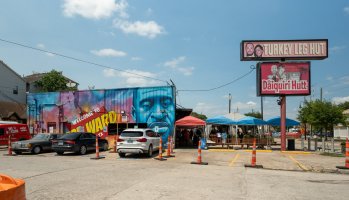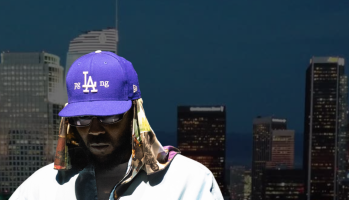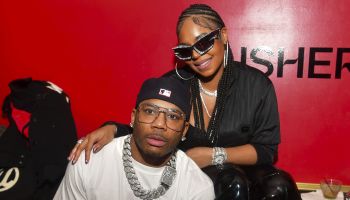1. Barack Obama: On January 20, Obama made history by becoming the first African-American president of the United States. The 44th president told Oprah Winfrey that he thinks he deserves a B+ for his first-year efforts, even though his approval rating is below 50 percent in some polls. About 15 million Americans are without work, and the budget deficit is more than $1 trillion, but — after a $787 billion stimulus package — the economy seems to be improving slightly. And there’s still an American auto industry.
The detention facility at Guantanamo Bay is not closed, the Iraq war’s not over, and 30,000 more troops are going to Afghanistan. The Mideast peace process is stalled, and North Korea and Iran continue to play shell games with their nuclear ambitions.
Without any Republican votes, health care legislation made it through the Senate. The president acknowledged that people are justified if they’re disappointed that the recent Copenhagen climate summit couldn’t solve major differences between countries.
Depending on your point of view, you may rate some of those situations as successes or as failures.
Obama set a high bar when he promised change and transparency and then faced Washington’s brutal partisanship. Whether his actions thrill or disappoint, no single person in the world today commands such attention.
On December 10, the president accepted the Nobel Peace Prize and said he viewed the decision less as a recognition of his own accomplishments than as a call to action. His opponents saw the prize as premature or unwarranted.
“Let us reach for the world that ought to be.” Obama said. “We can understand that there will be war and still strive for peace.”
2. Michelle Obama: The first lady’s official White House online biography begins, “When people ask Michelle Obama to describe herself, she doesn’t hesitate. First and foremost, she is Malia and Sasha’s mom.” And it concludes, “As first lady, Michelle Obama looks forward to continuing her work on the issues close to her heart — supporting military families, helping working women balance career and family, and encouraging national service.”
She brings students to 1600 Pennsylvania Ave., where there’s also a program for mentoring girls. The first lady often speaks to federal workers and cultivates a vegetable garden on the South Lawn that helps promote healthy eating and locally grown food. She listens to the president, and presumably addresses his concerns, after all of his appointed advisers have left for the night.
She supervises White House social events. Each scheduled occasion sends columnists and bloggers into a frenzy of speculation: Will she bare her arms? In her first year, she has managed to avoid major controversy, which is quite an accomplishment for a life lived under such a powerful microscope in a city that is terrible at keeping secrets and where gossip is currency.
She once said, “One of the lessons that I grew up with was to always stay true to yourself and never let what somebody else says distract you from your goals. And so when I hear about negative and false attacks, I really don’t invest any energy in them, because I know who I am.”
3. Sonia Sotomayor: The first Hispanic justice and only the third woman to be be seated on the Supreme Court was sworn in August 8.
Her parents came from Puerto Rico to New York during World War II, and she was raised in housing projects in the Bronx. Sotomayor graduated from Princeton and Yale, and served as an assistant district attorney in the office of legendary New York District Attorney Robert Morgenthau. She was nominated by President George H.W. Bush in 1991 to serve as a federal judge and by President Clinton in 1997 for a seat on the U.S. Court of Appeals, 2nd Circuit.
During the confirmation hearings for her Supreme Court nomination, some lawmakers questioned a statement she had made in a 2001 speech, “I would hope that a wise Latina woman with the richness of her experiences would more often than not reach a better conclusion than a white male who hasn’t lived that life.”
She ultimately backed away from the remark, calling it “a rhetorical flourish that fell flat,” but not before legal experts, high school debaters and customers in beauty and barber shops across the country debated the merits of the statement. Sotomayor also said, “It’s not the heart that compels conclusions in cases; it’s the law.”
4. Edward Kennedy: The U.S. senator who represented Massachusetts for 46 years died August 25, at the age of 77. He lived a life of tragedy and triumphs.
He was the brother of President Kennedy and Sen. Robert F. Kennedy, both of whom were assassinated. Ted Kennedy was elected to the Senate in 1962.
In July 1969, the car he was driving plunged off a bridge at Chappaquiddick Island, resulting in the death of 28-year-old Mary Jo Kopechne, one of Robert Kennedy’s former campaign workers. He pleaded guilty to leaving the scene of an accident, and historians generally agree that his explanation of what happened at the incident made him an unsuitable presidential contender.
He ran for the 1980 Democratic presidential nomination but was defeated by Jimmy Carter. An unapologetic liberal, he was an outspoken critic of the Vietnam War and apartheid in South Africa, and he was an ardent supporter of civil rights, education and health care reform.
He was diagnosed with a malignant brain tumor in May 2008. While fighting brain cancer, he spent his final days finishing his autobiography and urging his colleagues to pass universal health care legislation. At the 1980 Democratic Convention, Kennedy said, “The work goes on, the cause endures, the hope still lives, and the dreams shall never die.”
5. Sarah Palin: John McCain’s vice presidential running mate in the 2008 election resigned as governor of Alaska on July 3. With 18 months remaining in her term, she announced that she would not run again, explaining that it was difficult to do the job while facing various ethics complaints. Her strategic use of traditional and viral media — including a nationwide book tour, a political action committee and postings on Facebook — has allowed her to comment regularly on the day’s issues, support Republican candidates and remain in the public eye.
Her autobiography, “Going Rogue” was the No. 1 best-seller on The New York Times’ list December 27. As pundits speculated on a Palin presidential bid, she said she couldn’t imagine running for national office in 2012. In November, she wrote to supporters: “We won’t let anyone tell us to sit down and shut up. We’re going to stand up, stand together, and fight for what’s right!”
6. Michael Jackson: One of the most influential and controversial entertainers in the world died at the age of 50 on June 25. The Los Angeles coroner treated his death from cardiac arrest as a homicide, given the combination of prescription drugs found in his body.
Beginning in the mid-1960s as a child performer with his brothers, Jackson had a continuing impact on music, dance and fashion and on how media covered the personal lives of celebrities. His childhood years, two marriages, the birth of his children, the creation of his Neverland ranch, his financial problems, the allegations of sexual abuse of children and his ever-changing appearance all played out in public.
According to IMDb.com, Jackson sold more than 750 million albums worldwide. He won 18 Grammy Awards. He once said, “Children show me in their playful smiles the divine in everyone. This simple goodness shines straight from their hearts and only asks to be lived.”
7. Tiger Woods: The world’s greatest golfer has won 93 tournaments, 71 of those on the PGA Tour, making him also one of the planet’s richest athletes. According to Golf Digest, Woods made $769,440,709 from 1996 to 2007.
He was born in 1975, began playing golf at the age of 2 and never stopped, until knee surgery to repair a torn ligament cut short his 2008 season. After eight months, he returned to the PGA tour.
But an early morning accident at his Florida home on November 27 not only wrecked his car, it ruined one of the most pristine images in modern-day sports. He had been an unfaithful husband. More than once.
On December 11, Woods announced that he would take an indefinite leave from professional golf to focus on his marriage. Five days later, The Associated Press named him Athlete of the Decade.
Responding to allegations of extramarital affairs, he said, “I have let my family down, and I regret those transgressions with all of my heart. I have not been true to my values and the behavior my family deserves.”
8. Henry Louis Gates Jr.: A Harvard professor, an author and one of the country’s most prominent scholars of African-American history was arrested at his own home July 16.
Gates and a helpful cab driver had trouble unlocking his door. A neighbor phoned Cambridge, Massachusetts, police, who arrived expecting a possible break-in. Gates exhibited “loud and tumultuous behavior,” according to the police report, and was booked for disorderly conduct.
After showing Sgt. James Crowley his identification, Gates told the police officer that he was being targeted because “I’m a black man in America.” During a prime time news conference, President Obama was asked about the arrest and said police had “acted stupidly.” An uproar followed.
Seeking a teachable moment, the president invited Gates and Crowley for beer during a 40-minute White House Rose Garden conversation that month, which Vice President Joe Biden also attended. There were no apologies, but the professor and the police officer agreed to keep talking.
In February, Gates told Time magazine, “African-American history is generally taught only in Black History Month, which is February, the coldest, darkest, shortest month. It’s like the month that was left over, they gave to black people. I’m a big advocate of teaching history in our public schools on a multicultural level.”
9. Chesley “Sully” Sullenberger: On January 15, the airline captain, along with co-pilot Jeff Skiles, guided the stricken U.S. Airways Flight 1549 into the Hudson River, saving the lives of all 155 people on board. In his autobiography, “Highest Duty,” Sullenberger wrote that the landing was not a miracle but rather the result of decades of practice and training.
Nonetheless, immediately after the six-minute flight, Sullenberger was described as a true American hero and was invited to such events as Obama’s inauguration and the Super Bowl. He’s also the grand marshal of the 121st Rose Parade.
On December 14, one of his pilot’s caps — signed, but not the one he wore that fateful day — was sold on eBay for $5,800 as a fund-raiser for three San Francisco Bay-area public schools.
He also wrote: “These new pilots may have exceptional training, and they may have a higher degree of ability. But it takes time, hour after hour, to master the science and art of flying a commercial jet.”
10. Susan Boyle: Of all the reality show contestants and hopefuls who made headlines this year — Jon and Kate Gosselin, “plus Eight”; Michaele and Tareq Salahi, the White House crashers; Richard and Mayumi Heene, the balloon parents — Susan Boyle is the most worthy of the international fame she achieved.















